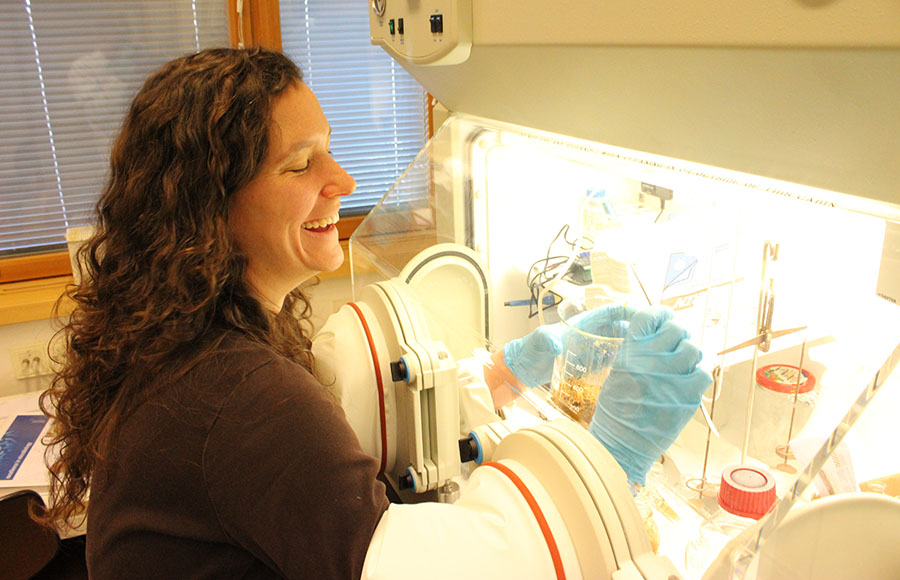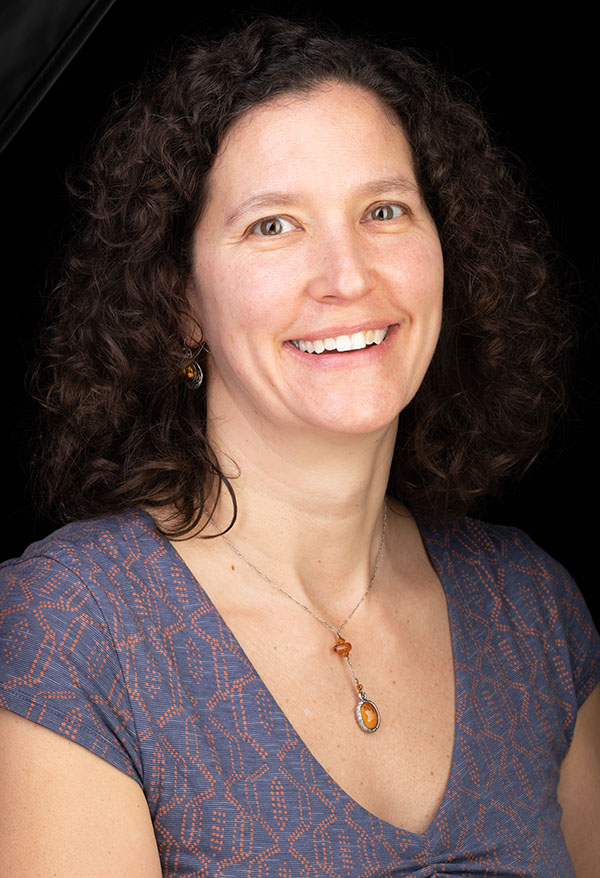BOONE, N.C. — Some of the Earth’s smallest creatures — namely archaea, a type of single-celled microorganism — may play a significant role in contributing to global climate change according to Appalachian State University’s Dr. Suzanna Bräuer. Through her 2020–21 Fulbright, awarded by the Fulbright U.S. Scholar Program, Bräuer is exploring these microbial impacts at the University of Eastern Finland (UEF) from March–July.
With the aid of UEF senior researchers Dr. Christina Biasi and Dr. Henri Siljanen, Bräuer, a professor in App State’s Department of Biology, will collect and examine microbial samples from the melting permafrost of the Baltic Shield (or Fennoscandian Shield), an arctic region in northern Europe.
This region is ideal for Bräuer’s research, as “arctic regions are experiencing warming due to climate change at twice the rate of other regions,” she explained.
According to experts, as global temperatures continue to rise due to climate change, permafrost — which stores the carbon-based remains of plants and animals that froze before decomposing — could become a significant source of planet-heating emissions, as it melts and releases stored carbon and methane into the atmosphere. Permafrost is a thick subsurface layer of soil that remains frozen throughout the year, occurring mainly in Earth’s polar regions.
“Canada, Russia and Scandinavia contain the highest density of organic carbon in the form of poorly decomposed plant material, or peat. In fact, 30% of all land in Finland is peat,” Bräuer said. “An important question is whether this carbon will remain stored in the peat or will become decomposed and released to the atmosphere.”
Bräuer explained that, through this research, she and her UEF colleagues will gain a better understanding of vital connections between the Earth’s physical and chemical conditions and greenhouse gas production, along with insight into those methane-producing archaea and bacteria populations contributing to climate change.
The team’s project builds upon research Bräuer initiated in preparation for her Fulbright assignment, through which she and researchers at UEF, Cornell University and Canada’s Laurentian University discovered the presence of the key gene involved in methane production among a type of archaea found in peat-forming wetlands.
“Methanogens (methane-producing microorganisms) in peatlands are notoriously challenging to enrich and isolate. Thus, much remains unknown about their physiology and how methanogen communities will respond to environmental changes,” Bräuer explained.
At UEF, Bräuer is also teaching graduate courses in microbial biogeochemistry — which explores the role microorganisms play in the physical, chemical, biological and geological processes at work in Earth’s ecosystems. Additionally, she is teaching journal club courses in which graduate students discuss publications from peer-reviewed scientific journals.
The Fulbright Program, established in 1946 under legislation introduced by former U.S. Sen. J. William Fulbright, is sponsored by the U.S. Department of State’s Bureau of Educational and Cultural Affairs (ECA).
The program provides participants — chosen for their academic merit as well as leadership potential — the opportunity to study, teach and conduct research, exchange ideas, and contribute to finding solutions to shared international concerns. To date, more than 400,000 “Fulbrighters” have participated in the program since its inception.
Bräuer is a 2020–21 recipient of the Fulbright-Saastamoinen Foundation Grant in Health and Environmental Sciences, which supports research and teaching in the fields of health or environmental sciences. The grant is jointly funded by the Saastamoinen Foundation, UEF and the Fulbright Finland Foundation.
Bräuer is a two-time recipient of the grant, having first received the award in 2015. Through her first award, she developed a course in biogeochemistry and taught another course on microbial diversity at UEF in spring 2015.
What do you think?
Share your feedback on this story.
About the Department of Biology
The Department of Biology is a community of teacher-scholars, with faculty representing the full breadth of biological specializations — from molecular genetics to landscape/ecosystem ecology. The department seeks to produce graduates with sound scientific knowledge, the skills to create new knowledge, and the excitement and appreciation of scientific discovery. Learn more at https://biology.appstate.edu.
About the College of Arts and Sciences
The College of Arts and Sciences (CAS) at Appalachian State University is home to 17 academic departments, two centers and one residential college. These units span the humanities and the social, mathematical and natural sciences. CAS aims to develop a distinctive identity built upon our university's strengths, traditions and locations. The college’s values lie not only in service to the university and local community, but through inspiring, training, educating and sustaining the development of its students as global citizens. More than 6,800 student majors are enrolled in the college. As the college is also largely responsible for implementing App State’s general education curriculum, it is heavily involved in the education of all students at the university, including those pursuing majors in other colleges. Learn more at https://cas.appstate.edu.
About Appalachian State University
As a premier public institution, Appalachian State University prepares students to lead purposeful lives. App State is one of 17 campuses in the University of North Carolina System, with a national reputation for innovative teaching and opening access to a high-quality, cost-effective education. The university enrolls more than 21,000 students, has a low student-to-faculty ratio and offers more than 150 undergraduate and 80 graduate majors at its Boone and Hickory campuses and through App State Online. Learn more at https://www.appstate.edu.














